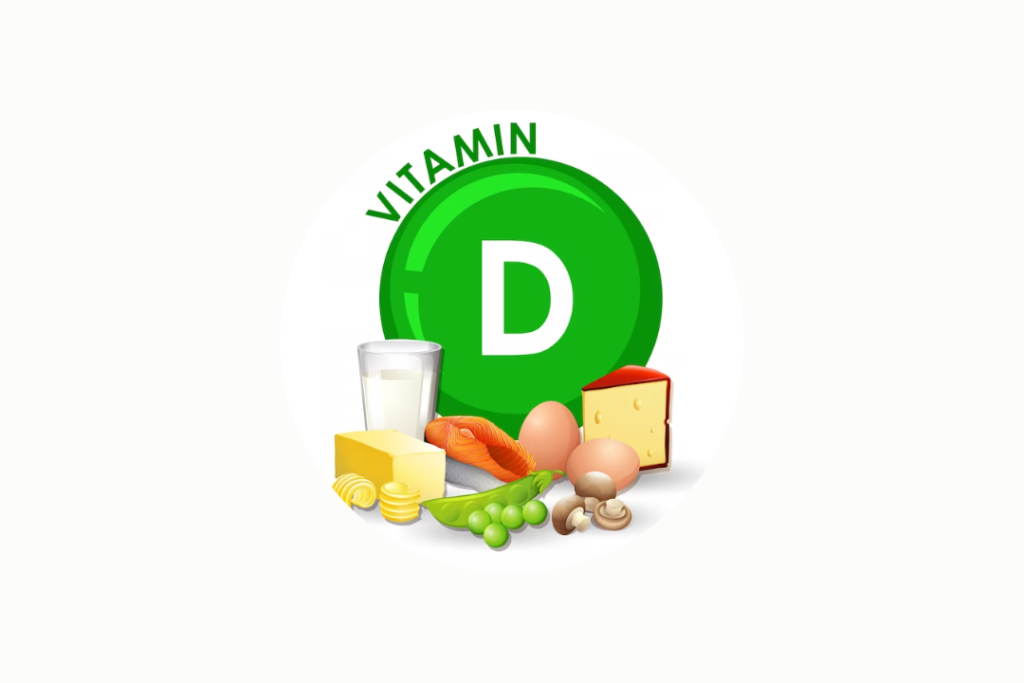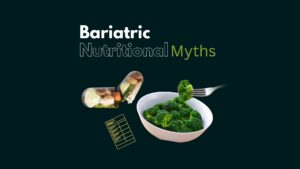
Harshalee Parkar
Bariatric Dietician & Content Writer

Why Vitamin D Is Important After Bariatric Surgery

Vitamin D is one of the essential nutrients and nowadays people are falling short of vitamin D because of their lifestyle, eating patterns, and not getting enough early morning sunlight these have a serious impact on their health.
After bariatric surgery, the role of vitamin D becomes even more significant. This is because bariatric surgery, such as gastric bypass or sleeve gastrectomy, can impact the absorption of essential nutrients, including vitamin D.
Vitamin D is crucial for bone health, immune function, and various other physiological processes in the body. Adequate levels of vitamin D are important for improving calcium absorption, minimizing the risk of osteoporosis, enhancing muscle strength, and maintaining a healthy immune system.
Due to the altered anatomy of the gastrointestinal tract following bariatric surgery, the ability to absorb vitamin D from food and supplements may be impaired. As a result, patients who have undergone bariatric surgery often have an increased risk of developing vitamin D deficiency or insufficiency.
What is Vitamin D?
Vitamin D is a group of fat-soluble vitamins that are essential for proper functioning of the body. The two major forms of vitamin D are vitamin D2 (ergocalciferol) and vitamin D3 (cholecalciferol). Vitamin D2 is primarily obtained from plant-based sources, while vitamin D3 is synthesized in the skin through exposure to ultraviolet B (UVB) radiation from sunlight or obtained from animal-based sources like fatty fish, egg yolks, and fortified dairy products.
RDA
The Recommended Dietary Allowance (RDA) for vitamin D varies depending on factors such as age, sex, and life stage. For infants up to 12 months, the RDA is 400 international units (IU). For children 1-18 years old, the RDA is 600 IU. Most adults, including pregnant and lactating women, require 600 IU of vitamin D per day. However, adults over the age of 70 may need slightly more, with an RDA of 800 IU. It is important to note that these recommendations may vary depending on individual circumstances.
Why is Vitamin D important after Bariatric Surgery?
Bariatric surgeries such as Sleeve or malabsorptive surgery can have a significant impact on the body’s ability to absorb nutrients, including Vitamin D. This is because the surgery alters the digestive tract, which can affect the absorption of nutrients from food.
After bariatric surgery, the stomach size is reduced, and the small intestine is rerouted. This can result in reduced production of stomach acid and intrinsic factors, which are both essential for the absorption of Vitamin D.
Without adequate levels of Vitamin D, patients can experience a range of symptoms, including fatigue, muscle weakness, bone pain and achiness, and difficulty maintaining balance.
Food Sources for Vitamin D are:
There are very few naturally occurring food items that are rich in Vitamin D. The best source of vitamin D can be found in fish or fish liver oil. In egg yolk, cheese, and beef liver it is found in small amounts.
In certain mushrooms certain amount of vitamin D2 is found; in addition, some commercially sold mushrooms contain higher amounts of Vitamin D2 because they are intentionally exposed to a high amount of UV light.
Many foods and supplements are fortified with vitamin D like dairy products and cereals.
Cod liver oil
Salmon
Swordfish
Tuna fish
Orange juice fortified with vitamin D
Dairy and plant milk fortified with vitamin D
Sardines
Beef liver
Egg yolk
Fortified cereals
How to Ensure Adequate Vitamin B12 Intake After Bariatric Surgery?
Depending on factors such as your pre-surgery vitamin D levels, ongoing blood tests, and any specific health conditions, your doctor/dietitian may recommend adjusting your vitamin D supplementation dosage. It’s important to follow their guidance and make any necessary changes to ensure you maintain optimal levels.
Due to decreased absorption and an increased risk of deficiency, vitamin D supplements are frequently suggested following bariatric surgery. Based on your unique needs, your doctor will choose the right dosage and keep a close eye on your vitamin D levels. It’s crucial to take the supplements exactly as directed and to heed their advice.
Sunlight is a natural source of vitamin D, and being outside can help your body create it. The quantity of sun exposure required, however, varies based on factors such as geographical location, time of year, skin color, and personal health considerations.
Knowing the importance of vitamin D and its function in your overall health might drive you to prioritize its use. To ensure you are proactive in maintaining appropriate levels, be educated about the advantages of vitamin D, indicators of inadequacy, and the possible impact of bariatric surgery on absorption.
Aastha Bariatrics is a metabolic and bariatric surgery center. At Aastha Bariatrics, we provide exceptional care to our patients and mentor them throughout the weight loss process. At our center, we value every patient’s life, so we never compromise on quality. Dr. Manish Motwani is one of the best bariatric surgeons in India, with 26 years of experience in Metabolic and Laparoscopic Surgeries. Over the last 15 years, patients have reported no difficulties following surgery.







